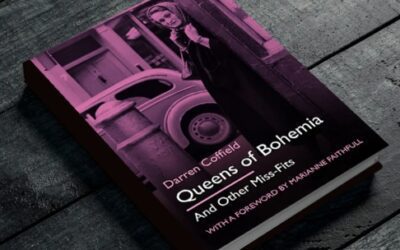[dropcap style=”font-size:100px; color:#992211;”]W[/dropcap]
hat’s Tori Amos’ problem? The audience, naturally.
Now that might sound like a provocative thing to say. Audiences, after all, are not to be blamed when what’s onstage sucks and they respond with a perfectly fair storm of rotten tomatoes and badly spelt sarcastic comments on Twitter. But the thing with audiences is that, once they’ve got an idea in their little group-mind, it is impossible to get it out.
That’s why so many people swear blind that Frankenstein was the monster rather than the creator, that there really was a character on Captain Pugwash called Seaman Staines, that there is still something called Common Law marriage, and that Nigel Farage and UKIP are a perfectly responsible choice to make in an election.
Mass stupidity
Put simply, audiences are a great way to disseminate mass stupidity. Sometimes it’s how the audience chooses to read something that takes precedence over what that thing really is. And that’s what brings us to Ms Tori Amos, and her new album Unrepentant Geraldines.
Now why is this relevant? Without thinking, just ask yourself what words enter your mind when ‘Tori Amos’ is said. If words like ‘kooky’, ‘sassy’, ‘alternative’ and – worst of all – ‘female artiste’ creep into your synaptics, then you see the problem.
Tori Amos is the archetypical woman singer-songwriter because the received wisdom has decided that she is the sum total of all female musical endeavour that doesn’t involve Beyonce or what’s-‘er-name with the tongue and the arse-waving. And that sum total is weird because, y’know, hormones and women’s bits. Yadda-yadda-Emma-Was-A-Cornflake-Girl etc.
That this straw man (Aunt Sally?) version of Tori Amos is just a distortion is neither here nor there. It doesn’t help that the cynical, focus group-approved fake angst of Happy Shopper acts like Alanis Morrissette and Sheryl Crow have helped cement the popular image. Nor does it help that the male equivalent of the sensitive female singer-songwriter is lionised (unless they’re Art Garfunkel) while Tori et al are mocked.
[quote]striking a balance between
vivid imagery and staying the
right side of the absurdity barrier[/quote]
A woman’s place is in a tight, skimpy leotard with the contours of her breasts showing; anything else makes you pretty much the mad aunt in the attic whose uterus gets in the way of her being taken seriously.
So let’s have a look at the real Tori Amos and her new album before the shite-geist rushes in to pass judgement. The first thing this record reminds us is that Tori Amos is a fucking great musician who knows how to write compelling but sophisticated music.
Yes, she’s given to whimsy and big metaphors, but isn’t that what musicians of all stripes and genital configurations are supposed to be? Is it also worth pointing out that she knows how to really knock out a good hook? Amos, after all, did a great cover of Slayer’s Raining Blood – her skill in this regard gets overlooked.
So too is her talent for striking a balance between vivid imagery and staying the right side of the absurdity barrier. Her lyrics might be colourful, but they are never lurid.
Track one, ‘America’, starts the album on a high note, with a subtle song structure that grows on the listener via a strong chorus and deft tempo shift midway through the song, and a timely theme of everyday folk in the USA, knee-deep in the shit and too crushed to do more than sleep. Fatalistic and faintly hopeful in equal measure, it protests but also reminds us that the likely outcome is that nothing will ever change.
The next track, ‘Trouble’s Lament’, has a gloriously naff faux gothic core tune and tongue-in-cheek country and western and Christian allusions, under which lurks a wistful stoicism and a crooked smile.
Track six, ’16 Shades of Blue’, is probably the most pointed song of the album. A meditation on getting ‘too’ old and staring down dipshit pollyannaism, the song dwells on how being a woman means having a sell-by date, whether you’re 50 (as Amos now is), 33 or even 15. Of course, David Bowie does this on all his albums nowadays, but the main difference is that the Thin White Duke never has to face up to his free bus pass unless he wants to. The song reminds us that women never have this luxury.
‘Maids of Elfen Mere’, song numero 7, is based on the Pre-Raphaelite verse of the same name and is probably the most immediately accessible song on the album. That’s not a bad thing; if only all catchy numbers on an album didn’t make you feel like you’ve been spoon-fed mashed up banana. It’s complex and multi-layered enough to keep your mind working even after repeated listens. Oh, if only all pop music were like this….
‘Promise’ then proceeds to extract your heart from your chest and lightly tenderises it with a mallet. A duet that Amos keeps in-house with the addition of her daughter Tash, whose vocals sound terrifyingly grown up (she’s thirteen), it throbs with understated melancholy at the fragility of childhood and innocence and a bond that endures under the weight of it all. You don’t want it to hurt, but it does and you’re grateful for it.
The title track is as close to a sprawling epic (by Tori Amos standards) as you can get, with tempo shifts aplenty, guitars twanging like The Police never split, a restrained but still utterly pissed off feminist screed and a grand sweeping narrative with a patter’s wife ironically praying for all those lost souls who said ‘fuck that’ and decided not to just be someone else’s wife.
This is probably the song that will get the most flack, especially from the crook-stoops with mummy issues and horrible little shits who lurk under bridges and for whom the phrase ‘social justice warrior’ is an insult. It doesn’t care and makes no apologies for itself, safe in the knowledge that there are enough people who are willing to pay attention, if only barely.
Frankly terrifying
The rest of the album, with songs like ‘Oysters’ and ‘Weatherman’ follows much the same pattern as these standout tracks, and is none the worse for it. Overall, it’s a very, very good album with lots of variety and the sort of painstaking precision and polish that is frankly terrifying when viewed in its full context. Tori Amos delivers without compromise or apology, and the end result is compelling to say the least.
But will the audience hear the same record as the one she recorded? That’s another matter altogether.

Alexander Hay is a writer and polemicist based online and in print.





















Alanis Morrisette and Cheryl Crow = Alanis MORISSETTE & SHERYL Crow.
Maybe before you publish a review and blasting two other strong female musicians, you can consider checking spelling.
Oops. Thanks for pointing that out Howard. Duly amended.
And maybe before you commit the genetic fallacy, you may wish to admit that those two ‘artistes’ suck like elevator music.
OK, this review rocks. I don’t think we entirely agree on the best songs on the album (Oysters, Forest of Glass) or the most readily accessible songs (Trouble’s Lament, obviously :oP ) but as for overall impressions and opinions this review is spot on.